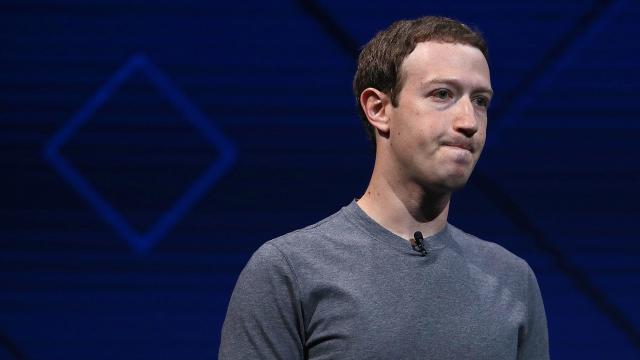Mark Zuckerberg took the unusual step of personally writing to critics upset at the way he characterised Facebook’s response to the ongoing civil strife in Myanmar. Zuckerberg apologised for not acknowledging the importance that activist groups had played in stemming the circulation of harmful messages in Myanmar. The groups wasted no time issuing a letter demanding more transparency and accountability from the social network.
Photo: Getty
The current debate first started last week when six civil society groups in Myanmar penned an open letter criticising Zuckerberg for statements given in an interview with Vox published on April 2. He’d said that Facebook had tools to detect and stop the spread false chain letters being sent through Facebook Messenger, which in the case Zuckerberg cited, had warned of imminent attacks supposedly planned by both Buddhist and Muslim groups. “Now, in that case, our systems detect that that’s going on,” Zuckerberg said in the interview.
The groups politely called bull on the claim, stating in an open letter that the “systems” Zuckerberg referred to were actually activists reporting hate speech manually. “In your interview, you refer to your detection ‘systems.’ We believe your system, in this case, was us – and we were far from systematic,” the groups wrote.
They noted that, “far from being stopped”, the hate speech messages actually spread “in an unprecedented way, reaching country-wide and causing widespread fear and at least three violent incidents in the process”.
The groups said Facebook’s efforts in Myanmar exemplified “the very opposite of effective moderation” and revealed “an overreliance on third parties, a lack of a proper mechanism for emergency escalation, a reticence to engage local stakeholders around systemic solutions and a lack of transparency”.
At issue is the persecution and alleged ethnic cleansing of Rohingya Muslims, a minority group that lives in the Buddhist-majority country. Since August 2017, more than 650,000 Rohingya people have fled the country to avoid being massacred.
United Nations human rights experts have cited Facebook as being responsible in part for facilitating the spread of hate speech and violence in the region. Data compiled by digital researcher and analyst Raymond Serrato revealed that hate speech on Facebook spiked in the lead up to killings of Rohingya.
Facebook is a dominant source for information in the country, as it is in many developing nations. In Myanmar, Facebook basically is the internet. According to data from LIRNEAsia, more people in Myanmar identify as “Facebook users” than “internet users”.
A day after posting the open letter on April 5, the groups received a response from Mark Zuckerberg’s personal email address in which he offered a mea culpa. “I wanted to personally respond to your open letter. Thank you for writing it and I apologise for not being sufficiently clear about the important role that your organisations play in helping us understand and respond to Myanmar-related issues,” Zuckerberg wrote in correspondence first obtained by The New York Times. (Facebook confirmed to The Times that the correspondence was real.)
Zuckerberg’s critics immediately responded with specific requests for improvements to the platform and additional investments into moderation services for the region, warning that “When things go wrong in Myanmar, the consequences can be really serious – potentially disastrous”.
The organisations sought details from Facebook regarding how many reports of abusive content it has received from users in Myanmar, how many of those reports were addressed by the company, and how long it took to remove the offending content, among other requests for transparency.
In his apology letter, Zuckerberg noted that the company has built artificial intelligence designed to identify hate speech and false information that has infected the platform, and added “dozens” of Burmese language content reviewers to monitor user reports of abusive posts and messages.
Victoire Rio, a social media analyst and spokesperson for the groups, told BuzzFeed News Zuckerberg’s response was “grossly insufficient” and “only reinforces our belief that Facebook is not doing anywhere near as much as they should and could do to prevent the spread of hatred in Myanmar”.
While the groups push for Facebook to provide the same level of moderation in Myanmar as it provides for Western nations, they may find that Facebook simply isn’t that good at it. The company has come under fire in the US, UK, Germany and other countries for failing to adequately moderate its massive platform.
